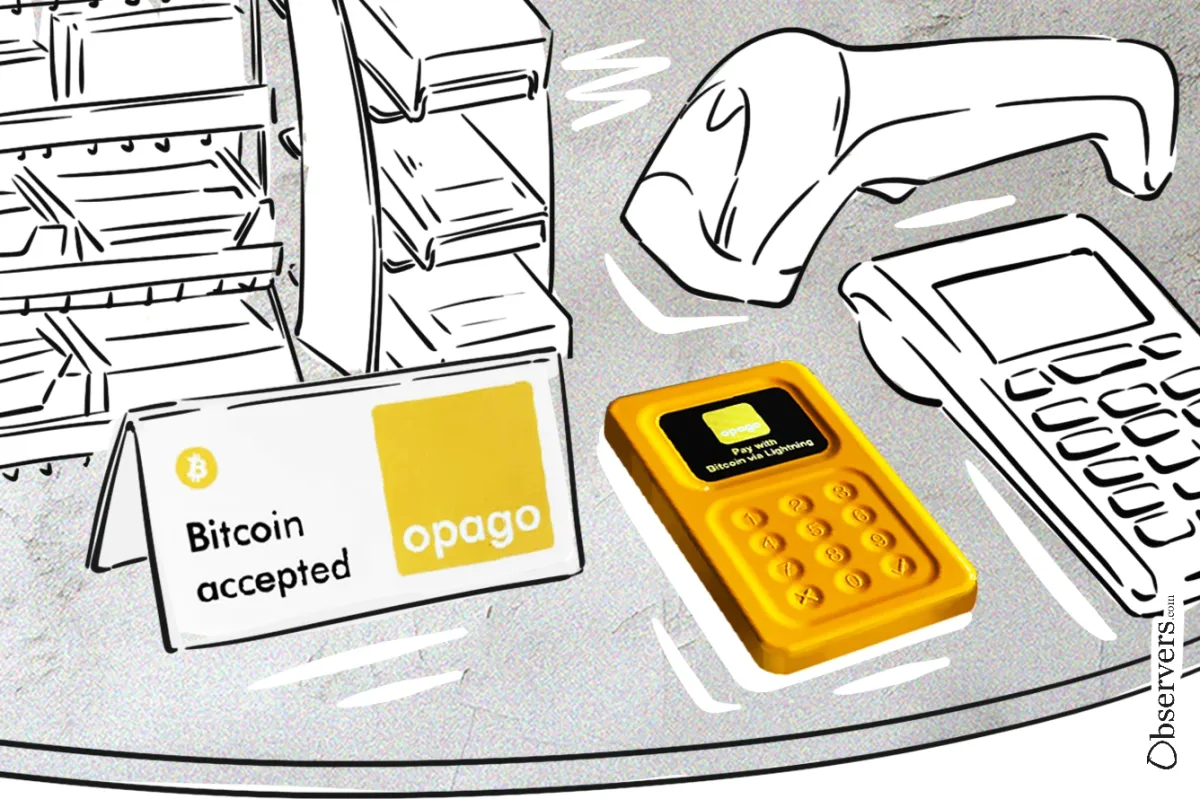
Cryptocurrencies are becoming an integral part of contemporary finance, with the number of users expected to rise to 1 billion this year alone. The development of solutions that reduce the friction of interacting with decentralized assets is essential to the sector's growth.
While most of those solutions target individual users, OPAGO Pay has created a full-fledged service for merchants who want to accept cryptocurrencies as a form of payment.
In an email conversation, OPAGO's co-founder Michael Dülk told Observers, "Our motivation is to remove the technical, regulatory, and tax hurdles to enable merchants to easily accept Bitcoin payments via Lightning."
The German start-up began operating in December 2023. For a 1% flat fee on transactions, it gave merchants an OPAGO PoS Terminal, which, after each bitcoin payment, returns a report with all necessary financial information.
The terminal, currently the centerpiece of the company's service, uses the Lightening Network to facilitate fast and secure payments. The Bitcoin peer-to-peer micropayment protocol is compatible with fiat currencies with taproot assets, allowing transactions with any currency that has been issued on the Bitcoin blockchain.
Lightening Network currently handles around 1 million transactions per second. Dülk believes that in 5 years, it will grow to "handle more transactions than traditional interbank settlement networks and at a lower cost."
"Lightning is a technologically superior payment network, even if used to send fiat currency. This will naturally make its adoption grow, especially with companies like OPAGO that make using lightning a breeze."
While Lightening Network expands, so will OPAGO. The German-based enterprise hopes to partner with 500 merchants during this first full year of operations and, by 2029, onboard around 100 million vendors each year from all over the world.

The next step in OPAGO's growing ambitions is to deploy a solution for online purchases, which is already being tested with selected vendors. In the long run, Dülk also expects that the bitcoin-payment functionality can be added to existing devices rather than needing a purpose-only terminal. "Right now, it is still not possible due to regulations," the co-founder lamented.
At present, the hardware device represents a seamless onboarding mechanism, as it doesn't require employees to learn any additional technical skills or employers to invest in hardware.
"Mobile phones are too expensive to buy just for accepting payments and also require training for the employees, while with our POS terminal you simply turn it on and enter the amount. Done.”
OPAGO operates only in the European Union, where "companies need help in the increasingly hard-to-navigate jungle of EU regulations."
Crypto regulation has increased the market's safety but also adds an extra layer of complexity. In the EU, since the Markets of Crypto Assets (MiCA) regulation came into effect last month, merchants must abide by strict and complex laws, which represent a barrier to crypto adoption.
"Regulations and taxes are most difficult in the EU, so companies here need a reliable partner who understands their situation."
The innovative service developed by the German enterprise secured first place at the Start-Up Pitch Contest at BTC Prague 2024. "We are very proud that we won the pitch contest at BTC Prague. With this tailwind, we hope to secure our seed round."


